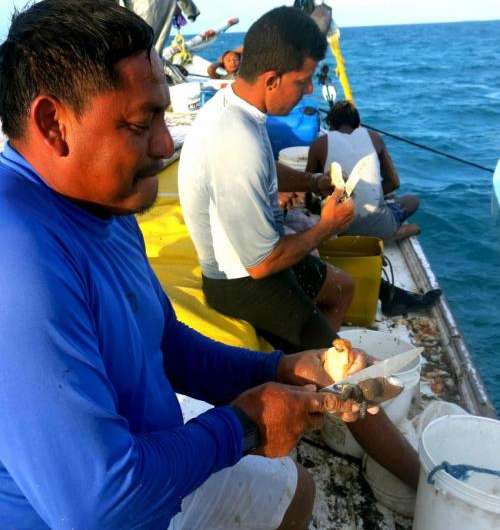Belize's lobster, conch, and fish populations rebuild in no-take zones

A new report from the Wildlife Conservation Society shows that no-take zones in Belize can not only help economically valuable species such as lobster, conch, and fish recover from overfishing, but may also help re-colonize nearby reef areas.
The report—titled "Review of the Benefits of No-Take Zones"—represents a systematic review of research literature from no-take areas around the world. The report was written by Dr. Craig Dahlgren, a recognized expert in marine protected areas and fisheries management. The report comes as signatory countries of the Convention on Biological Diversity countries are being required to protect at least 10 percent of their marine territory.
"Belize has been a leader in the region for establishing marine protected areas and has a world-renowned system of marine reserves, many of which form the Belize Barrier Reef Reserve System World Heritage Site," said Janet Gibson, Director of the Wildlife Conservation Society's Belize Program. "It's clear that no-take zones can help replenish the country's fisheries and biodiversity, along with the added benefits to tourism and even resilience to climate change."
WCS commissioned the report to describe the performance of no-take zones in Belize and in other countries to ultimately conserve highly diverse coral reef systems. In many coastal marine ecosystems around the world, overfishing and habitat degradation are prompting marine resource managers to find ecosystem-based solutions. The report also examines factors affecting the performance of no-take zones, such as the design, size, location, and factors of compliance with fishing regulations.
According to past studies, the recovery of lobster, conch, and other exploited species within marine protected areas with no-take zones, or fully protected reserves, could take as little as 1-6 years. Full recovery of exploited species, however, could take decades.
"The report provides a valuable guide for Belize's marine managers and fishers," said Dr. Caleb McClennen, Executive Director of WCS's Marine Program. "We also hope this effort will generate and sustain stakeholder support for these important regulatory tools."
Provided by Wildlife Conservation Society



















